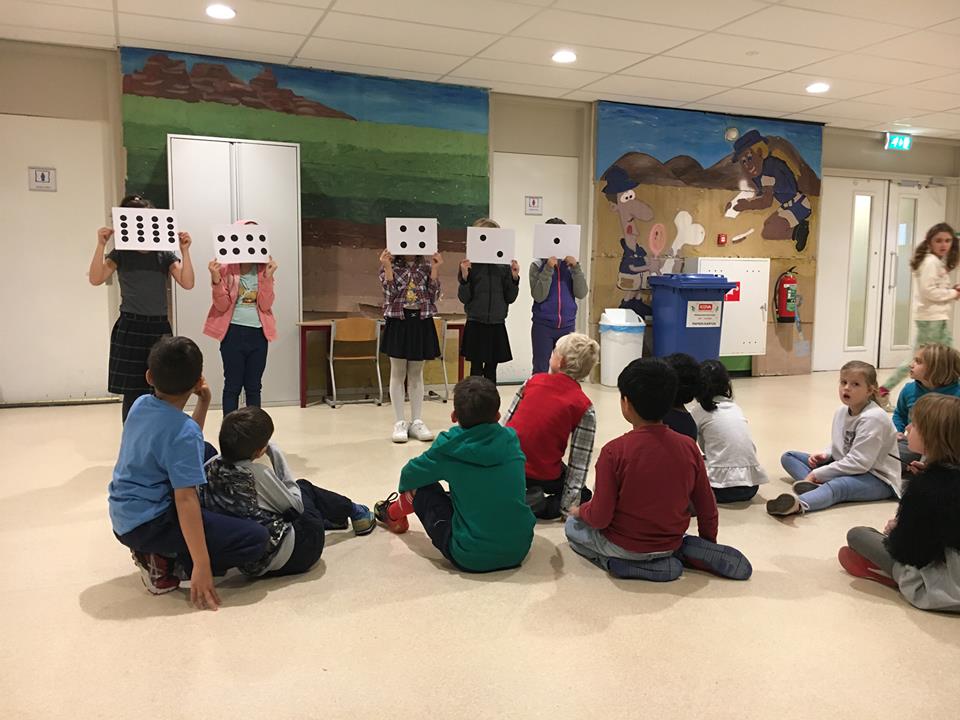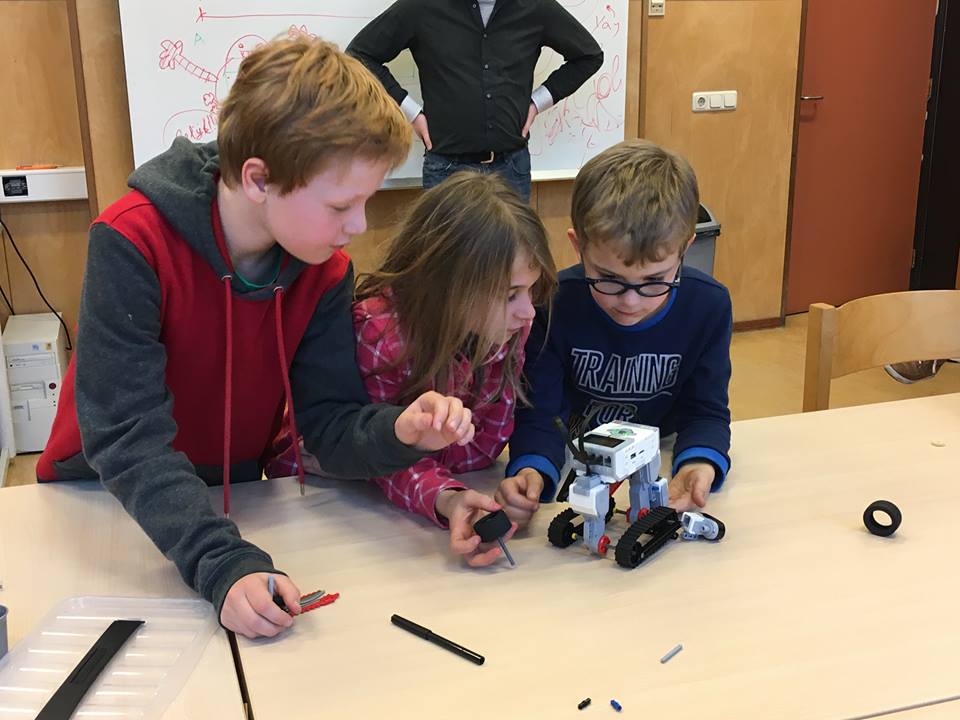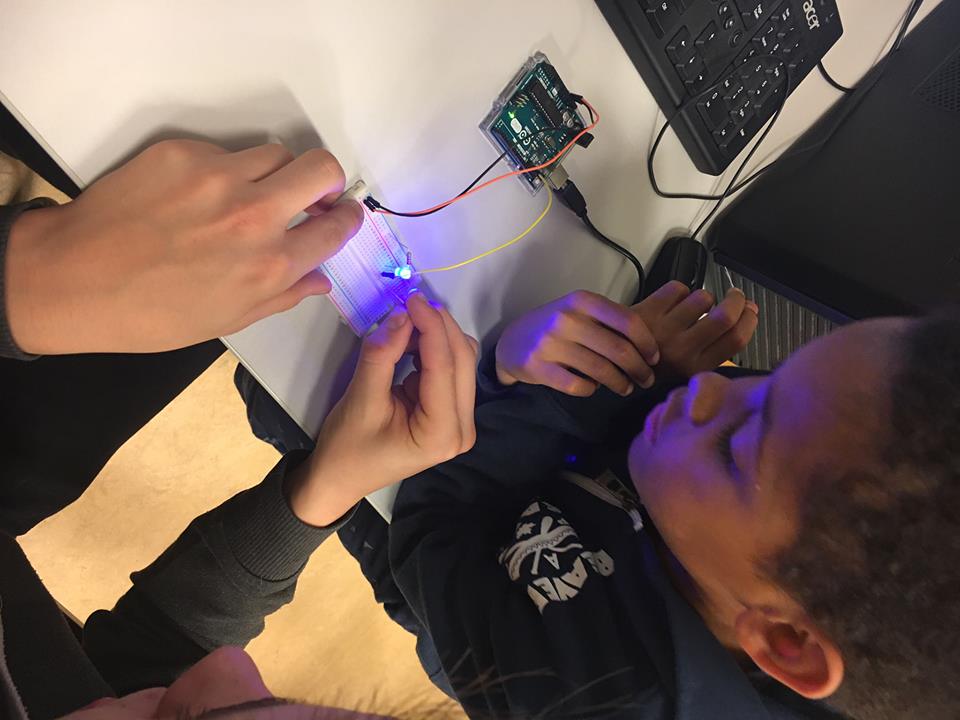Click here for more information and to register. The world is receiving a major wake up call. Hundreds of thousands of students from around the world have been marching to tackle climate change. Hashtags such as #FridayforFuture and #SchoolsStrike4Climate dominate social media. If we are going to tackle problems like climate change, pollution, extreme weather and other environmental challenges, we need to change our habits and invent new technologies. In recognition of the fact that
Read moreLEGO Mindstorms
LEGO Mindstorms is one of our favourite tools for teaching children ages seven to 12. It is a tangible tool which provides children with a realistic experience of designing, building and programming technology. It also teaches children that hardware and software influence each other and need to work together in order to develop successful technology prototypes. Many of our students say that they first realised the power and fun of computer science after they built their
Read morePrimary schools are playing an increasingly important role in providing students with computer science and technological literacy education and computational thinking skills as part of a solid 21st century skills and education strategy. NewTechKids has been visiting a variety of primary schools in the Netherlands and interviewing principals and teachers in advance of our latest teacher training program which begins on Wednesday, January 17, 2018. Here are some tips for parents which will help you
Read moreNewTechKids works with primary schools in the Amsterdam area to help introduce computational thinking and computer science programs as part of formal school curriculum. Our programs integrate pedagogy, didactics, teaching approaches and classroom management and are based on the curriculum, lesson plans and teaching materials that we've developed, tested and taught over the last three years. Below are some of the schools where we've taught: Leonardo da Vinci School, Amsterdam NewTechKids teaches computer science programs
Read moreThe way that computer science education is promoted to primary school-aged children can make all the difference. NewTechKids learned this lesson during our latest round of after-school computer science bootcamps which ran from January - March 2017. Previously, we had marketed our bootcamps as 'Discover Computer Science' or 'Explore Computer Science' and listed all of the wonderful computer science concepts that children would learn about: loops, algorithms, if-else statements, sequences, Boolean data, etc. This may have been great marketing to reassure parents
Read moreThis December, NewTechKids added Arduino as a new teaching tool during our 'Discover Computer Science' bootcamp for 10-12 year olds. Kids received multiple lessons as an introduction to Arduino. With its open source platform and active community of developers, Arduino is a great teaching tool. Kids received a basic introduction to programming in JavaScript but that's not the main reason we are teaching Arduino. Arduino offers another learning environment where kids can identify and creatively apply the fundamental computer science concepts
Read moreWith artificial intelligence (AI) all around us, NewTechKids decided to teach a special AI bootcamp during last week’s Fall school vacation in Amsterdam. Our goal: to kids what AI is, the thinking behind it, how it’s being used in everything from self-driving cars to customer service and Siri, Apple’s ‘intelligent’ personal assistant, and the pros and cons of this technology. Developed by Stichting NewTechKids and sponsored by Openbare Bibliotheek Amsterdam (Amsterdam Municipal Library), the course
Read moreLast week, we engaged our students in some serious challenge-based learning in order to understand systems thinking and how computers are embedded into all kinds of systems. We challenged the 7-12 year old kids in our 'Computers and How They Work' summer bootcamp to work in teams to design and program a smart energy system which could respond to different temperatures and activate a heating system when the room temperature dropped. In the process, they learned about conditionals and if-else statements.
Read more






